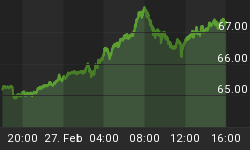Today's post-CPI update is later than usual (normally, on CPI day I 'tweet' my impressions as I have them). A prospect meeting got in the way - yes, isn't it interesting that there is demand for creative inflation-linked solutions?
Probably, after today, this will be a trifle less surprising. Core inflation surprised on the high side. Consensus had been for the month-over-month figure to be +0.1%; instead it printed +0.236%. This pushed the year-on-year core inflation rate to 1.826%, the highest it has been in a year...and yet still the lowest it is likely to be for a very long time.
So, with the wonderful perfection of timing that is only possible from elite policymakers, the Fed has begun to chirp about deflation fears at just exactly the time that core inflation is turning higher. Do recall that core inflation never got below 1.6% - very far from "deflation" - and was only that low because of well-known effects stemming from the impact of the sequester last year on Medicare payments. Median inflation, which eliminates the influence of small outlier decreases (and increases) on the number, scraped as low as 2.0%, and now sits at 2.2%. It has not been higher than that since mid-2012. Median inflation hasn't been higher than 2.3% since 2009, so it is fair to say that inflation is much closer to the highs of the last five years than to the lows. Deflation, indeed.
A closer view of the subcomponents do not give any less cause for concern. Of the eight major subcomponents, six (Food & Beverages, Apparel, Transportation, Medical Care, Recreation, and Education & Communication) accelerated on a year-over-year basis while only two (Housing and "Other") decelerated.
At first glance, that sounds promising. Housing inflation dropped to 2.5% from 2.8%, and those people who are worried about another housing bust right now will be quick to seize on that deceleration. Housing inflation, which is 41% of the total consumption basket, has been a primary driver of core inflation's recovery in recent months so a deceleration would be welcome. But a closer look suggests that the number for Housing overstates the 'deceleration' case considerably. "Fuels and utilities," which is 5.2% of the entire consumption basket and about 1/8th of Housing, dropped from 6.8% y/y to 4.2%. That was the entire source of the deceleration in housing. The larger pieces, which are also much more persistent, were higher: Primary rents rose from 2.88% y/y to 3.05% y/y, while Owners' Equivalent Rent was roughly flat at 2.62% compared to 2.61%. So it is perhaps too early to panic about deflation, since the rise in OER and Primary rents is right on schedule as we have been marking it for some time (see chart below, source Enduring Investments).

Outside of housing, core inflation accelerated as well. Core ex-Shelter rose to 1.16% from 0.90%. The inflation is still significantly in services, as core commodities are still only -0.3% year/year. But that will rise soon, probably starting as soon as next month, based on our proxy measure.
As has been well advertised, the temporary depression in Medical Care inflation growth has officially ended. Now that April 2013 is out of the year/year data, the Medical Care major group saw prices rise 2.42% over the last year compared with 2.17% y/y a month ago. Medicinal drugs are at +1.70% compared with +1.44%. Medical equipment and supplies -1.39% vs -1.53%. Hospital and related services +5.55% vs 4.69%. I don't see the deflation, do you?
This rise in CPI was broad and deep, with nearly 80% of the lower-level indices seeing increases in the y/y rate. It is hard to find any major component about which I would have to express concern, if I was a Federal Reserve official worried about deflation. The breadth of increase is itself a signal. When some prices go up, it is a change in relative prices and will be considered inflation by some people (those who are sensitive to those prices) and not so much by others. But "inflation" is really about a general rise in prices, in which most goods and services participate. As I mentioned above, not all goods prices are participating but in general most prices are rising and, if this month is any gauge, accelerating.
We should hesitate to read too much into any one month's inflation number. There is a lot of noise in any economic data, so that it can be hard to discern the signal. I believe that there is enough underlying strength here that this is in fact more signal than noise, though, and so I continue to expect core inflation to accelerate for the balance of the year.
I have no idea how long Fed officials will continue to fret about deflation, nor how long it will take the concern to shift to inflation. I suspect it will take a long time, although the stock market today seems less certain on that point with the S&P at this writing down -1.3%. Curiously bonds, which are clearly overvalued if inflation is not contained, rallied today (although breakevens predictably widened). But I think all markets are safe for some time from the risk that central bankers will develop a concern about inflation that is acute enough to spur them to action. (Not to mention that it isn't at all clear to me what action they could take that would have an effect on the inflation dynamic in any reasonable time frame given that excess reserves must be drained first before any tightening has teeth). This does not mean that I am sanguine about the prospects for nominal asset classes such as stocks and nominal bonds - but at some point, they won't need the Fed's cudgel to persuade them to re-price. When inflation is obvious enough to all, that will be sufficient.















